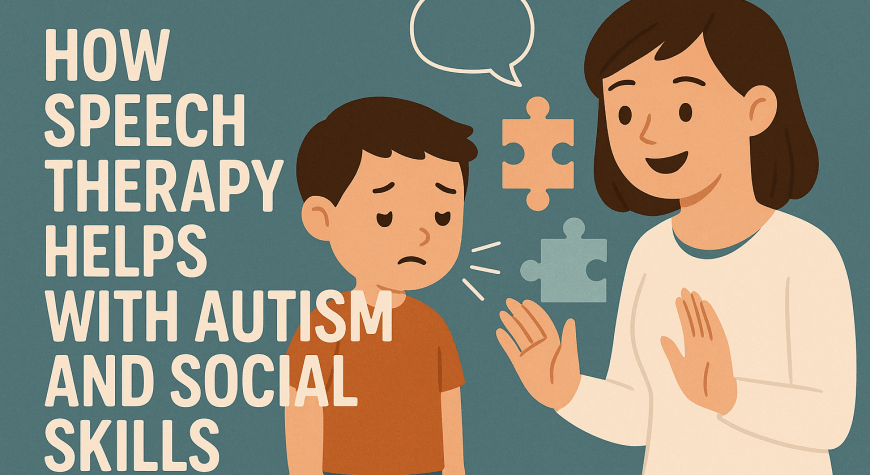How Speech Therapy Helps with Autism and Social Skills

How Speech Therapy Helps with Autism and Social Skills
Children with autism often face unique challenges in communication, making speech therapy a vital component of their development. By focusing on both verbal and non-verbal communication, speech therapy can significantly enhance social interactions and overall quality of life.
Challenges in Communication for Children with Autism
Autism spectrum disorder (ASD) encompasses a range of communication difficulties. Some children may have limited verbal skills, while others might struggle with understanding non-verbal cues like facial expressions or body language. These challenges can lead to difficulties in expressing needs, forming relationships, and participating in social activities.
Role of Speech Therapy in Autism Development
Speech therapy plays a crucial role in helping children with autism develop effective communication skills. Therapists work on various aspects, including:
- Verbal Communication: Enhancing vocabulary, sentence structure, and speech clarity.
- Non-Verbal Communication: Teaching the use of gestures, facial expressions, and understanding of body language.
- Alternative Communication Methods: Introducing tools like picture exchange systems or speech-generating devices for non-verbal children.
Building Verbal and Non-Verbal Communication
Therapists employ various techniques to foster both verbal and non-verbal communication:
- Demonstrating appropriate communication behaviors for the child to imitate.
- Using pictures, symbols, and social stories to aid understanding.
- Engaging in activities that promote turn-taking and conversation skills.
These methods help children understand and express themselves more effectively.
Improving Social Interaction and Peer Skills
Social communication is often a significant challenge for children with autism. Speech therapy addresses this by:
- Encouraging appropriate greetings, topic maintenance, and turn-taking.
- Helping children interpret facial expressions, tone of voice, and body language.
- Practicing social scenarios to build confidence in real-life interactions.
These strategies aim to improve peer relationships and social participation.
Involving Parents in the Therapy Process
Parental involvement is essential in the success of speech therapy. Parents can:
- Reinforce Skills at Home: Practicing techniques learned in therapy sessions.
- Provide Consistent Feedback: Sharing observations and progress with therapists.
- Create a Supportive Environment: Encouraging communication in daily routines.
Speech therapy is a powerful tool in supporting children with autism. By addressing communication challenges early and involving parents in the process, children can develop the skills needed for meaningful social interactions and improved quality of life. Furthermore, organizations like Steps Groups offer resources and guidance to help parents actively participate in their child’s therapy journey.


